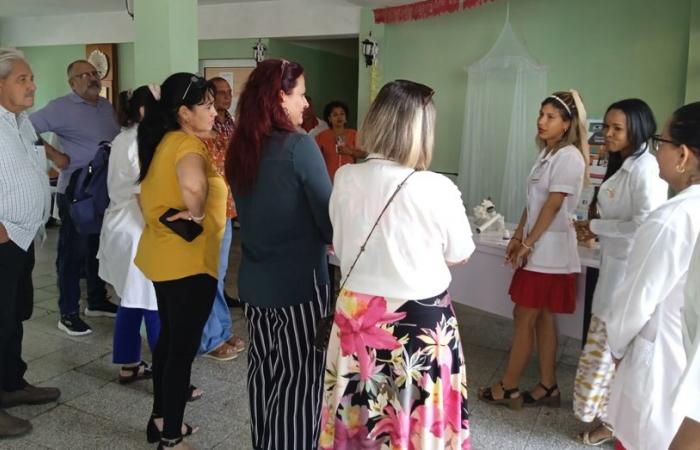Las Tunas.- This Friday, a delegation from the Cuban Ministry of Public Health (MINSAP) visited the province to evaluate work results in the sector, especially in the confrontation with various diseases, with emphasis on preparation against the arboviruses (transmitted by the bite of a mosquito), which usually proliferate in the summer months.
As part of the agenda, tours have been carried out through healthcare units, promoting exchanges with their workers. At the Provincial Center for Hygiene, Epidemiology and Microbiology (CPHEM), for example, the team spoke with Las Tunas managers, in what became a fruitful meeting based on preventing unfortunate health situations.
There, Yumara Acosta García, director of CPHEM, explained operational indicators of the surveillance and control program for various diseases. Although she made it clear that, at this time, the territory does not show alarming rates in most ailments, there are always actions to perfect to avoid, as far as possible, various ailments.
According to the directive, Covid-19, typhoid fever, syphilis, leptospirosis, rabies, hepatitis… are kept at bay in the territory, while others such as tuberculosis, HIV-AIDS and digestive transmitted conditions show certain worrying parameters. However, he clarified, constant surveillance is maintained for both these communicable and non-communicable diseases (main causes of death in our country), in addition to compliance with the vaccination plan, with priority for vulnerable groups.
In relation to dengue, he highlighted that at this time the situation in the province shows a favorable state, but that this does not imply that they are confident, since a total of 4,350 outbreaks have been found so far this year and several blocks have reoccurred. . He mentioned the health areas corresponding to the “Gustavo Aldereguía” and “Aquiles Espinosa” polyclinics as those with the greatest focus, as well as the municipality of Puerto Padre. In addition, he pointed out that they maintain constant surveillance, complying with the focal point in the different territories of the province, sending samples to the Pedro Kourí Institute of Tropical Medicine (IPK), among other actions.
For his part, Francisco Durán García, national head of Epidemiology at MINSAP, recognized the work of CPHEM, “which has been reaping results.” In conversation with 26, the doctor called on the population to support sanitation work, in all those places that can accumulate water and promote the reproduction of vectors that transmit the Oropouche virus (recently detected in different Cuban provinces), such as mosquitoes of the genus Culicidae and Culicoides midges.
In relation to the prevention of arboviruses in the province, Aldo Cortés González, deputy director of Epidemiology at CPHEM, told this press outlet: “We ground the national plan to the conditions of the province, especially in relation to preventive work, community participation and self-protection, the elimination of potential foci, the arrest of cases with febrile syndromes and other actions. The support of the people in this anti-vector fight is essential. We have to try to eliminate breeding sites, inside and outside the home. “Be attentive to the symptoms, since the symptoms of dengue and Oropouche are similar. Therefore, timely care is vital to avoid complications.”
This working visit, headed by Gretza Sánchez Padrón, general director of Hygiene, Epidemiology and Microbiology of the MINSAP, together with other authorities, in addition to evaluating the results of the work in the sector here, contributes to consolidating lines of work to perfect the work of who, day after day, strive to protect the health of the people.







